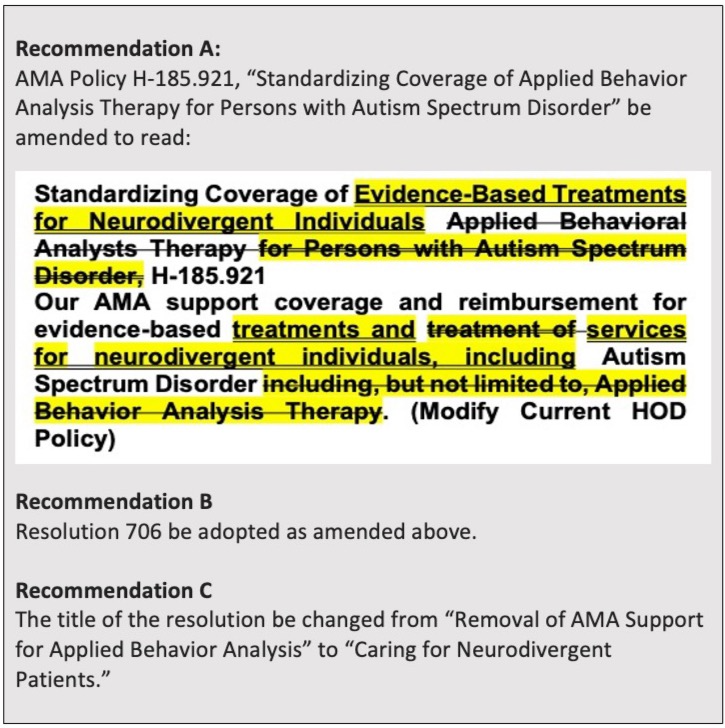Correcting the Record: ABA and the AMA
The AMA Did Not Remove Support for ABA
During Summer 2023, there has been considerable misinformation about recent actions of the American Medical Association regarding Applied Behavior Analysis. Following is CASP’s understanding of the actions taken and the overall situation.
First, the AMA did not remove support for Applied Behavior Analysis (ABA). Rather, it considered, in its regular course of business, a proposed resolution asking it to withdraw support for ABA. Following consideration, the AMA specifically declined to adopt the proposed anti-ABA resolution. Instead, it changed the wording of the resolution to express its support for all evidence-based care.
In more detail, here is what happened. The AMA Medical Student Section submitted a draft resolution to the AMA House of Delegates. The students’ proposal was Draft Resolution 706. It is clear from the text of the draft that this particular group of stakeholders harbors strong anti-ABA sentiment that, based on the citations provided, may be based (at least in part) on anecdotal information and otherwise flawed references that have been soundly refuted (e.g., Cohen’s response to the Department of Defense’ use of the PDDBI, a rebuttal to Kupferstein’s assertion that ABA causes PTSD).
The draft resolution was referred to AMA Reference Committee G, which reviews proposed resolutions prior to their consideration by the full AMA House of Delegates. Reference Committee G declined to even submit the draft resolution as written to the full House of Delegates. Instead, it made substantial amendments to the body of the draft resolution and changed the title to make clear that the AMA was not removing support for ABA.
Specifically, after reading the draft submitted by the students, AMA Reference Committee G made three recommendations to the full House of Delegates:

The AMA House of Delegates followed the guidance of the Reference Committee in adopting an amended version of Resolution 706. The text of the amended resolution is here.
As modified, the resolution does not remove support for ABA; it just removes specific reference to ABA and makes room for other evidence-based treatments. The intent of the modified language was twofold: to allow for coverage of evidence-based treatments for other neurodivergent conditions beyond autism spectrum disorder, and, from the Reference Committee report, “to be inclusive of practices beyond ABA.”
CASP supports the changes adopted by the AMA and is grateful to AMA Reference Committee G for its reasoned response to the draft resolution.
The AMA has already acknowledged that ABA is an evidence-based service to address the core features of autism spectrum disorder by approving Category 1 CPT codes for adaptive behavioral therapy. As such, nothing in the AMA’s actions should be read as withdrawing or even weakening support for ABA.


